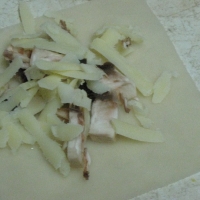Okay. I''m joining
-
dagnabbit 17 years ago Flag
-
 wynnebaer
17 years ago said:
Flag
wynnebaer
17 years ago said:
Flag
-
 peetabear
17 years ago said:
Flag
peetabear
17 years ago said:
Flag
-
 jett2whit
17 years ago said:
Flag
jett2whit
17 years ago said:
Flag
-
chefelaine 17 years ago said: Flag
-
 lanacountry
17 years ago said:
Flag
lanacountry
17 years ago said:
Flag
Have a comment? Join this group first →
Group Details

- Creator
-
chefelaine
- Type
- Public
- Members
- 74
- Age
- 17 years ago
- Activity
- low
- Membership
- Join the Group
Did you know?
You can find quick links to all discussions you've taken part in via the "Discussions" tab.
